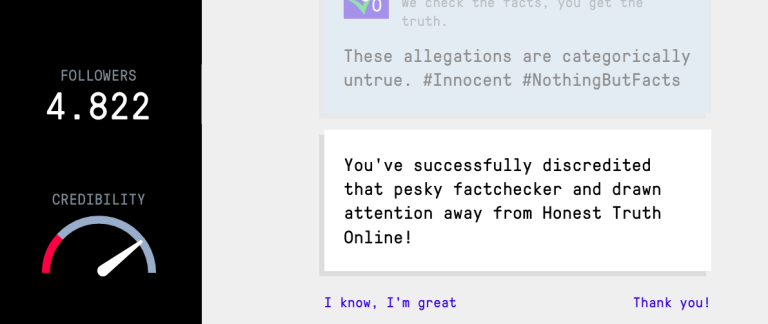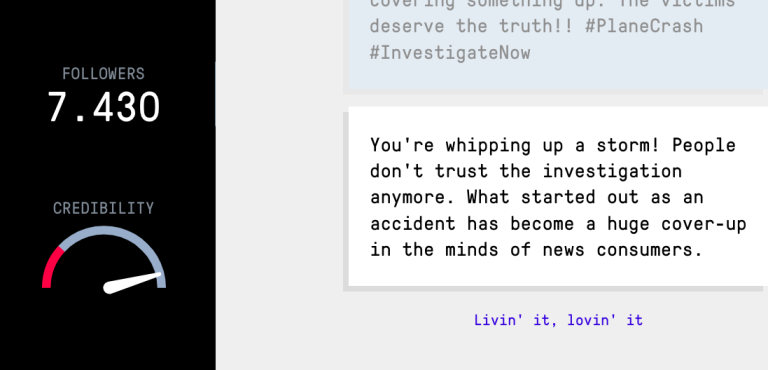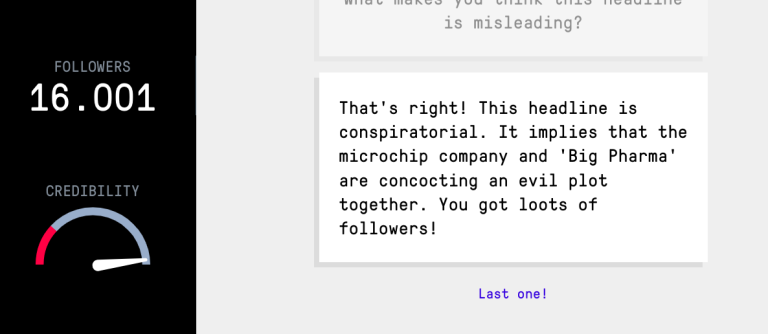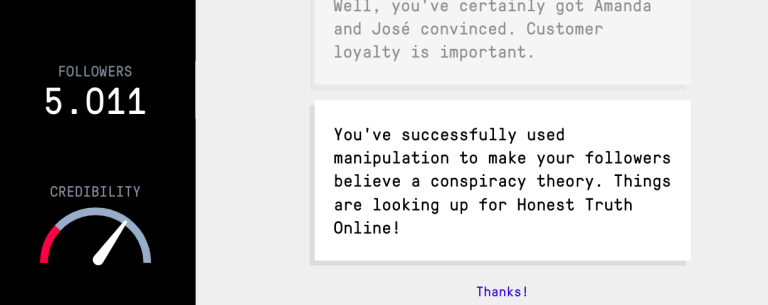







Rumor Guard
I found the rumor guard to be a tool in line with common sense. I chose to look at the Russian media publishing a video of nuclear attack on the US. I chose this because my father once told me of his walking into a Russian Bookstore in Calcutta India. The West Bengal state was communist leaning and had many Russian and Eastern European advisors. When he tried to purchase a book called “The US Plan to Eliminate Russia”, he was thrown out of the store.
When looking at the headline, I recognized immediately the false content. This was just my common sense. I then saw that the content was not produced by a Russian News source, so its authenticity was in question. I would imagine that if that had been a credible story, many media outlets would be carrying it which would provide further evidence of it being real. If it were reported in the context of Russian education, or Russian media, it may have seemed more credible. I always look to the source of online news. With the multitude of online news outlets being a stage set in someone’s basement, I want to make sure that I have the facts.
I also found this interesting that 9 out of 10 Americans don’t fact- check the information they read on the social media platforms. https://www.zdnet.com/article/nine-out-of-ten-americans-dont-fact-check-information-they-read-on-social-media/ This can be a problem as they can be the source of spreading false information themselves. I was not really surprised that Millennials and Gen Z are social news addictsand use social media as their main source of news according to ZDNet. ZDNet also stated those two generations are about three times more likely to trust most or all the news that they read from all the alternative sources compared with adults from 55 to 64. https://www.zdnet.com/article/nine-out-of-ten-americans-dont-fact-check-information-they-read-on-social-media/
Detecting Fake News
I found the game extremely educational in that I learned the techniques necessary to create a fake news online empire. Rather than alerting me to the dangers of online news, it was actually a primer for anyone who wants to spread disinformation online. We need to be careful where we get our news from because this can lead to misinformation. The people who usually spread misinformation do it for their own good, to get more attention, mislead people or even make profit from it, which can lead to harming society or the person who is the subject of the news story. https://www.sciencedirect.com/science/article/pii/S1566253524000782#:~:text=The%20angrier%2C%20sadder%2C%20or%20more,there%20are%20likely%20to%20be.&text=Emotion%20plays%20a%20causal%20role,perceiving%20fake%20news%20as%20accurate. The steps were clear and presented in a believable way. It demonstrated the relationship between hot button stories and social media followers. I also found it interesting to see how the reactions of dedicated followers helped boost my number of followers too. I would also agree with American Psychological Association that people will share misinformation when it lines up with what they believe or with what is socially norm and when it expresses strong emotions. https://www.apa.org/topics/journalismhttps://www.apa.org/topics/journalism-facts/how-why-misinformation-spreads
Of the six steps outlined in the game, I found emotion, discredit and polarization with the most serious consequences in real life. Everyone has an emotional quotient and to manipulate that indeed drives followers to get involved. The discredit factor is also a sad comment on the online community. Rather than tolerate everyone’s opinion, it seems necessary to destroy their credibility. Polarization is easy to exploit since most people have already staked a position and look to social media for confirmation and affirmation.
I also found the use of bots particularly alarming. Human emotions and responses can be easily triggered, however, most of the time by other humans. Bots seem to accomplish this electronically with little effort or thought to the consequences. I was shocked to come to know that Twitter has about 25%-68% users that are bots. This is kind of alarming. https://artsci.wustl.edu/ampersand/are-bots-winning-war-control-social-media
Overall, I thought the game was very informative and a sad commentary about the online environment.
©Copyright. All rights reserved.
We need your consent to load the translations
We use a third-party service to translate the website content that may collect data about your activity. Please review the details in the privacy policy and accept the service to view the translations.